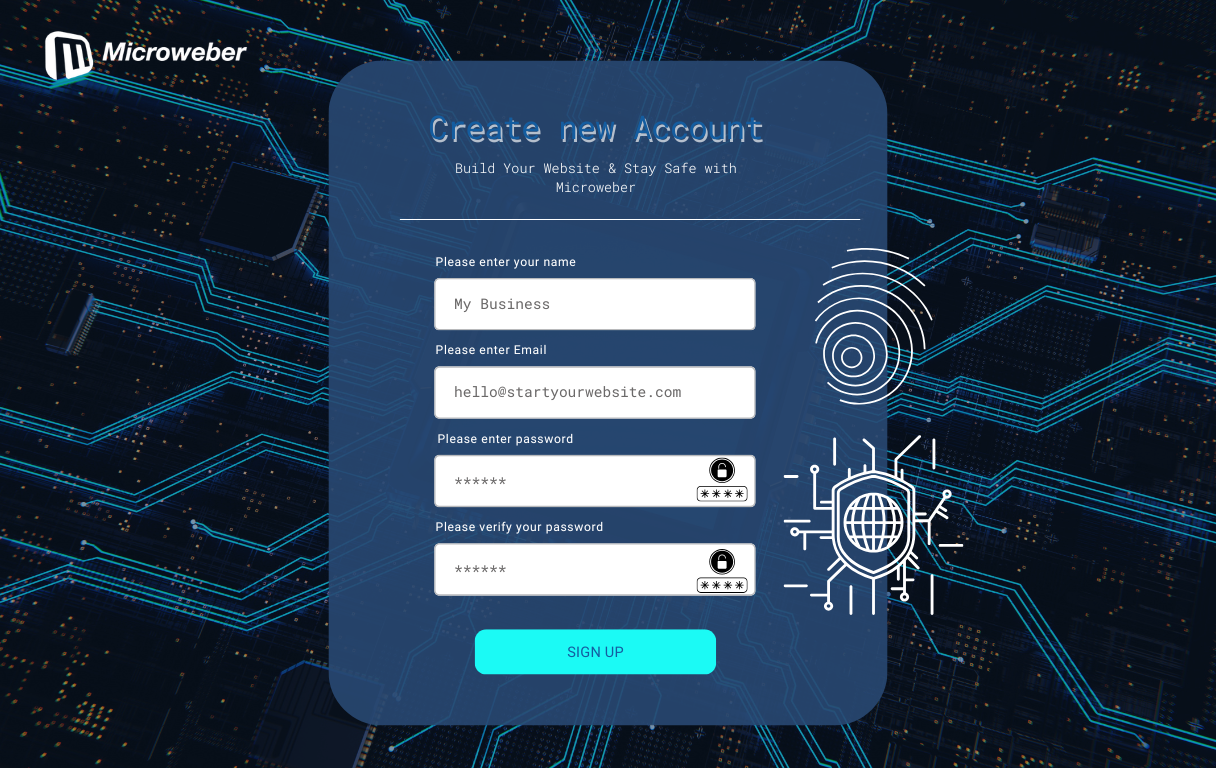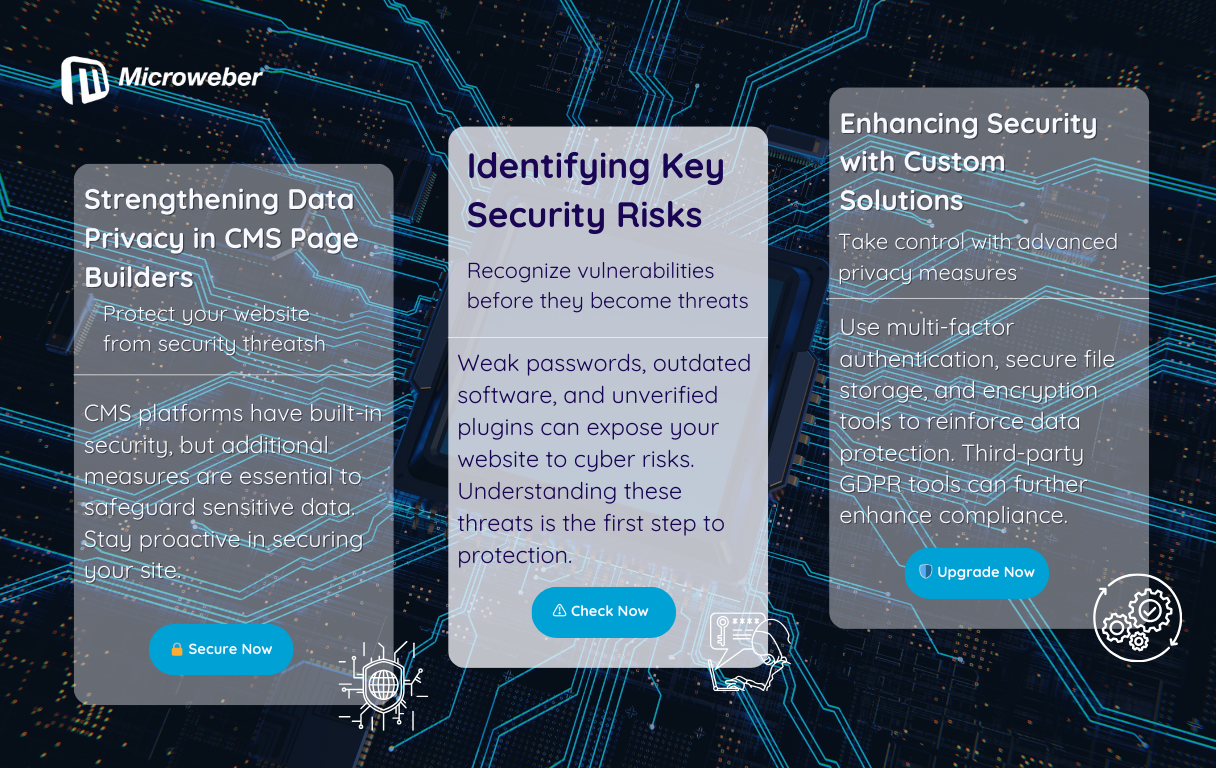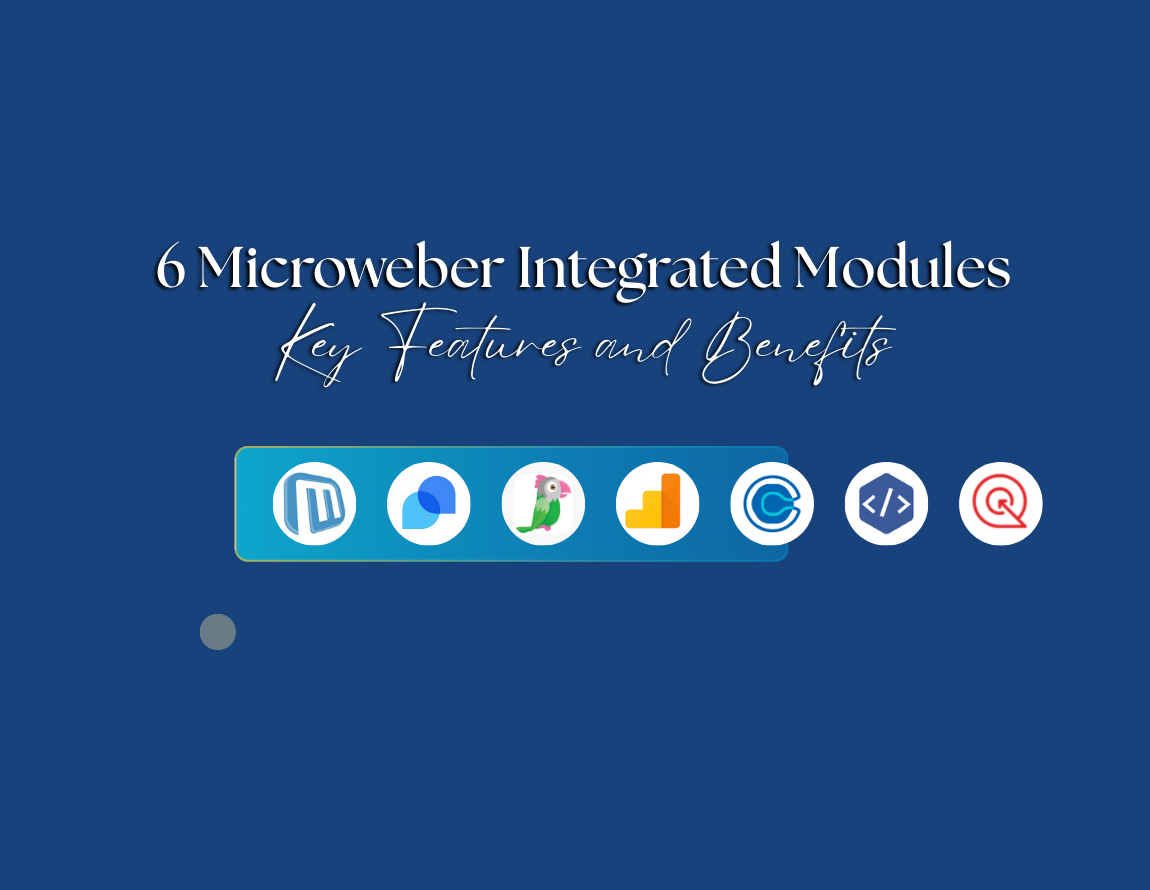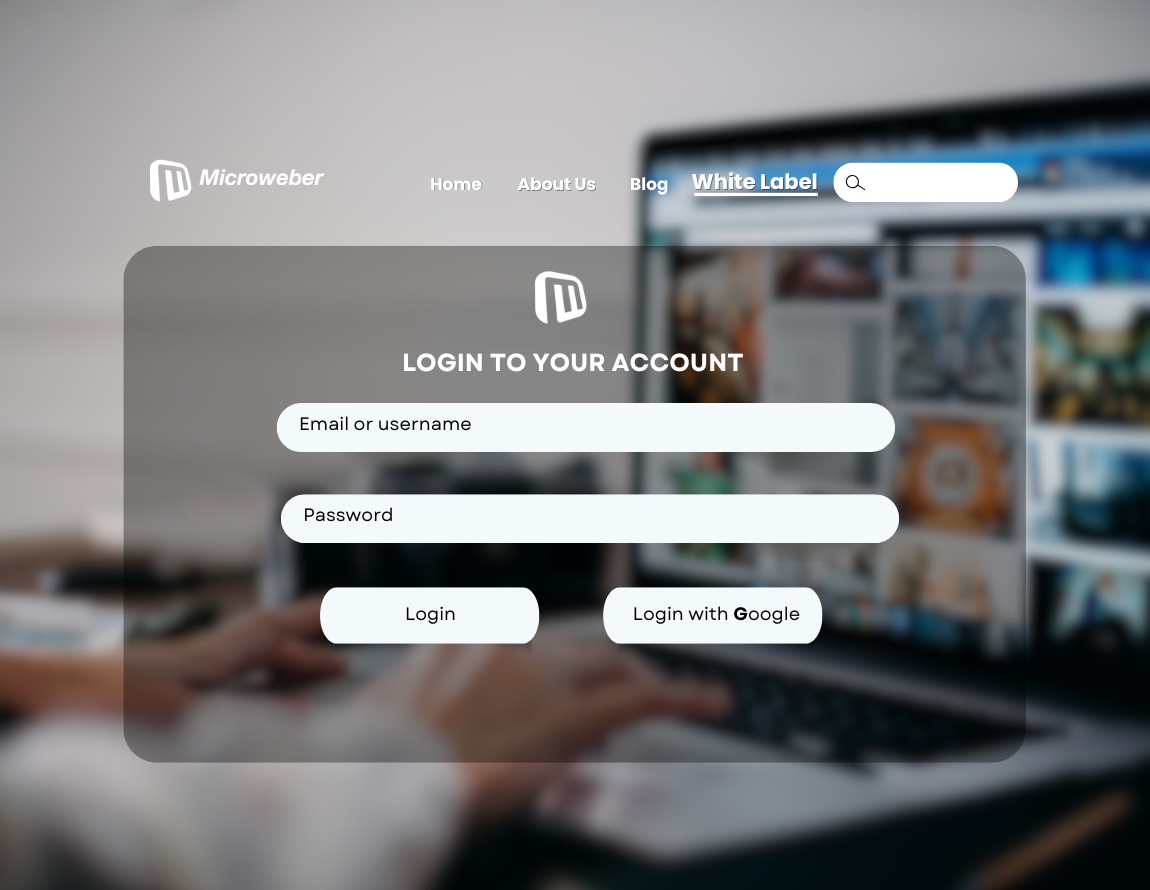Is Your CMS Page Builder Secure? Discover Data Privacy in Microweber
Posted on: March 17, 2025 Updated on: March 17, 2025 by Nada Allam Your website is not only about content and appearance, it's the place people come to interact, share information about themselves, and trust you with information.
Your website is not only about content and appearance, it's the place people come to interact, share information about themselves, and trust you with information.
But with more breaches and privacy concerns taking place, is your CMS page builder secure?
A nice-looking website is wonderful, but with the security precautions taken, your data, and the trust of your site visitors, can be compromised.
From GDPR compliance to SSL encryption and role-based access controls, a very secure CMS page builder should do more than just make it simple for you to create a lovely website, it should be safeguarding every interaction.
The most crucial security feature your CMS needs to have, the risks if it does not, and how Microweber makes privacy simple
Ready to take control of your website security?
Understanding the Role of CMS Page Builders in Data Privacy
Data privacy is a concern for business owners and website owners who use CMS page builders.
With increased regulation and cyber attacks, having the security aspect covered for your CMS is no longer an option, it's necessary.
What is a CMS Page Builder?
Page builder CMS is the type of software that allows users to build, modify, and structure website content without needing excessive technical knowledge.
Page builder tools like Microweber provide drag-and-drop functionality, integrated e-commerce capabilities, and simple content management functionality to make website creation simplified.
The Significance of Data Privacy in Modern CMS Solutions
While e-shops and individual sites are collecting more information about users than ever, privacy for the data is the most basic feature for any CMS these days.
Securing the information of users does more than only protect the customers; it makes your website internationally law- and industry-compliant.
Core Data Privacy Regulations and Compliance Challenges
Companies are required to follow different privacy laws and regulations in order to safeguard the information of the users.
Any CMS page builder website owner needs to know about such laws and the penalties for non-compliance.
Overview of Major Data Privacy Laws: GDPR, CCPA, and Others
All governments of the world have implemented strict data privacy laws to safeguard users' details, and organizations utilizing a CMS must comply with them to avoid legal action.
Some laws that regulate data privacy include:
GDPR (General Data Protection Regulation): Enforced in the EU, the law lets the users get control of personal data and requires companies to obtain consent specifically to gather details.
California Consumer Privacy Act (CCPA): It gives the consumers in the state the right to know what information about them is being gathered and for what.
Other laws: There are varying privacy laws in different countries, and companies need to align their CMS security measures accordingly.
Implications of Non-Compliance for Businesses
Non-compliance with privacy laws results in severe penalties like huge fines, reputational harm, and loss of trust by customers.
Businesses that use the services of the CMS page builder like Microweber must possess the necessary security protocol to be in compliance.
Essential Features for Ensuring Data Privacy in CMS Page Builders
A robust CMS page builder must have the requisite privacy features to protect user information.
This could be anything from encryption to role-based access control, all of which help with compliance and security.
Integrated Privacy Features: What to Look For
An adequate CMS comes with tools that are designed to handle the user data with care.
Microweber has some security measures to assist website administrators in being in line with the rules and protecting their users.
GDPR Cookie Consent Implementation
Microweber comes with the GDPR cookie consent module which enables administrators to notify users about the tracing of data and get them explicitly to consent prior to gathering information.
SSL Encryption: A Necessity for Secure Transactions
Secure Sockets Layer (SSL) encryption protects data between websites and users.
Microweber provides SSL certification so that no unauthorized access is attempted and transactions are secured.
Payment Security: PCI DSS Compliance Explained
Secure payment processing is required by online customers. Microweber comes integrated with reliable payment gateways like PayPal and Stripe that are PCI DSS (Payment Card Industry Data Security Standard) certified.
Role-Based Access Control: Managing User Permissions Effectively
Role-based access control enables website administrators to assign roles and permissions to users to restrict the access to sensitive information.
Microweber enables role-based access control to strengthen security and prevent unnecessary modification to information.
Data Integrity Through Regular Backups: Best Practices
Periodic back-ups make the website information safe against cyber-attacks or technical problems.
Microweber has back-up options that are able to restore the website if the information is lost.
Overcoming Data Privacy Challenges in CMS Page Builders
 While CMS platforms have security measures, they are never completely riskless. Webpage owners must react to potential weak links and look for additional measures to improve privacy security.
While CMS platforms have security measures, they are never completely riskless. Webpage owners must react to potential weak links and look for additional measures to improve privacy security.
Common Data Security Risks Associated with CMS Page Builders
CMS page builders can be susceptible to security vulnerabilities when they are not well maintained, allowing unauthorized access to the website, data theft, and compromised user data.
These risks can be summed up by:
- Poor passwords leading to unauthorized use
- Unfixed vulnerabilities in legacy programs
- Third-party plugins with weak security capabilities
- Inadequate encryption resulting in breaches
Custom Solutions for Enhanced Privacy Protection
Besides inherent qualities, owners can implement extra security measures to websites such as multi-factor authentication, secured storage of files, and encryption plugins.
Leveraging Third-Party Tools for Additional Compliance
For added privacy, Microweber customers can include third-party compliance measures, for instance, GDPR plugins, security scanners, and privacy-enforcing extensions.
Evaluating the Effectiveness of Your CMS Page Builder
Data privacy requires continuous monitoring and updating. For such reasons, it is necessary to identify performance indicators and auditing techniques to ascertain the level to which your CMS page builder meets security standards.
Key Metrics for Measuring Data Privacy Compliance
Data privacy is quantified in many different ways. In order to deliver robust data privacy, organizations must quantify major security measures such as:
- Strength of encryption and SSL certification
- Effectiveness of User Consent Management Tools
- Access control installation and security settings
- Systematic patch management and updating
Conducting Privacy Audits: How to Ensure Compliance
Regular security audits can help webmasters identify vulnerabilities and weaknesses. Businesses who use Microweber must be constantly auditing security configurations, monitoring compliance, and updating privacy policies.
Future Trends in Data Privacy for CMS Technologies
As data privacy continues to advance, CMS platforms must keep up with emerging technologies and threats.
Some of these main technologies include AI and other emerging technologies that impact data security.
AI and Data Privacy: The Next Frontier for CMS Page Builders
Artificial intelligence is transforming cybersecurity by detecting the threats, automating compliance, and improving risk assessment.
AI-powered technologies are set to make an even more dramatic impact on CMS security in the future.
Emerging Technologies and Their Impact on Data Security
There exist emerging technologies such as blockchain, decentralized identity management, and zero-trust architecture to assist with enhancing data privacy.
Microweber can embrace such technologies to provide even enhanced security services.
Conclusion
Not only is offering data privacy in CMS page builders legally required, but it's also the initial step towards maintaining trust and security for the website users.
Microweber's built-in facilities such as GDPR compliance functionality, SSL encryption, and role-based permissions make it easy for the users to meet the security standards optimum.
However, frequent updating, regular auditing, and other security measures can make the security level even more robust.
As data privacy laws continue to change, it is essential to be proactive and aware. Get ahead with website security now!
Learn about Microweber's privacy settings and bring your CMS page builder in line with the most recent data privacy standards.
FAQs
How to keep your site safe?
Use secure passwords, enable the use of SSL encryption, use role-based access control, and update Microweber CMS for security patches.
Why CMS security is crucial?
CMS security shields the users' details against cyber attacks, satisfies global standards, and prevents potential legal and monetary losses.
What information do we collect from you?
Microweber-based websites can save cookies, personal configurations, and information provided through contact forms or online orders with the express permission of users.






